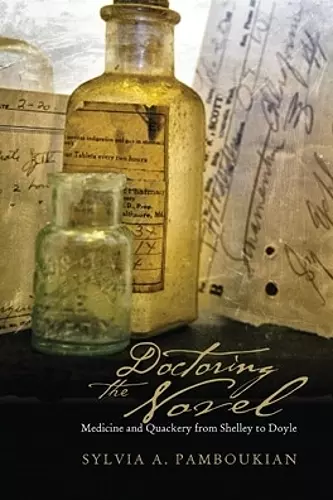Doctoring the Novel
Medicine and Quackery from Shelley to Doyle
Format:Hardback
Publisher:Ohio University Press
Published:14th Mar '12
Currently unavailable, and unfortunately no date known when it will be back

If nineteenth-century Britain witnessed the rise of medical professionalism, it also witnessed rampant quackery. It is tempting to categorize historical practices as either orthodox or quack, but what did these terms really signify in medical and public circles at the time? How did they develop and evolve? What do they tell us about actual medical practices?
Doctoring the Novel explores the ways in which language constructs and stabilizes these slippery terms by examining medical quackery and orthodoxy in works such as Mary Shelley’s Frankenstein, Charles Dickens’s Bleak House and Little Dorrit, Charlotte Brontë’s Villette, Wilkie Collins’s Armadale, and Arthur Conan Doyle’s Stark Munro Letters. Contextualized in both medical and popular publishing, literary analysis reveals that even supposedly medico-scientific concepts such as orthodoxy and quackery evolve not in elite laboratories and bourgeois medical societies but in the rough-and-tumble of the public sphere, a view that acknowledges the considerable, and often underrated, influence of language on medical practices.
“This very perceptive and imaginative study makes a significant contribution
to Victorian studies.”
“Pamboukian’s book is an insightful look into medicine and language that should inspire further inquiry into the literature of the period and, as she suggests in her concluding remarks, medicine today.” * Victoriographies *
“…Doctoring the Novel is a valuable and unique contribution to Victorian studies because it bridges the scholarly gap between historical studies of nineteenth-century medicine and literary readings of medicine that focus on medicine as a hegemonic force. The text is also a helpful resource for scholars and students in the medical humanities. Pamboukian not only provides insightful readings of Shelley, Brontë, Dickens, and Doyle through the lens of medical discourse, but she also justifies why such readings are productive.” * Journal of Medical Humaniti
ISBN: 9780821419908
Dimensions: unknown
Weight: unknown
224 pages